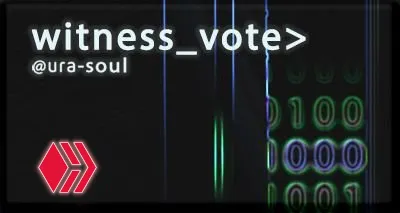I recently posted about Intellectual Property (IP) and shared a video from the excellent, James Corbett, in which he interviews Stephan Kinsella - an IP lawyer who is an anti-IP activist! They argue that intellectual property hinders humanity and turns against the principles that originally drove the creation of patents. Now I want to show another side to this which is extremely important, not just for patent - but for our future survival.

Much of our reality starts in imagination and in thinking. Therefore, it is reasonable to think that to solve our problems and improve our world, we need to improve our thinking. Part of this also means improving our communications and relationships too - since we need to share and create experiences as groups, not just as individuals.
Before social networking existed, actually before the internet really existed much, I wrote the dissertation for my degree in Applied Computing on 'equality in the future of the internet'. This wasn't about genders, skin colours or religions - it was about technical complexity and ensuring that the future of the internet (and thus the future of communication, ideas and business) was not restricted to the most geeky and technically knowledgeable. I realised very early on that many of our problems and even wars have stemmed partially from power being centralised and the rest of the people being exploited. I wanted to solve this using the internet.
While I wasn't quite prepared for the level of xenophobia, fear and limiting belief systems that were/are being held collectively - which social media networks have helped to expose as people become more connected - I was prepared for the top-down authoritarian, technocratic power-plays that we have seen over and over again through the actions of Facebook, Twitter, the NSA, the UK's MI5 and the Israeli Hasbara teams etc.
'Information is the new oil' and so it follows that every manipulative creep on Earth has tried to get in on the act - whether it be 'surveillance capitalists' seeking to profit from measuring our every move.. or NFT scammers seeking to track markets, memes and thinking in order to extract every last penny from everyone else - honest people are surrounded on all sides!
Against all of this, it is common for people to buy into the mainstream narrative that IP is a life saver - it keeps creativity flowing and free because .. 'people can pay lawyers exorbitant fees to try to keep control of thoughts'. On the face of it this already sounds ludicrous, but people fear the alternative - a world where other people can steal their creativity and profit from it indefinitely.
This is a legitimate concern - as a creative person, with decades of work in various fields, I know very well how frustrating it can be to put my heart and soul into something, only to find that someone else presents it to the world as if it is their own work - with few people realising that a kind of fraud has taken place. While it is important that ideas flow freely, on the other hand, this creates a new problem. THOSE WHO ARE MOST NOTICED and therefore THOSE WHO CONTROL COMMUNICATION SYSTEMS have most of the power. They are able to gather other people's ideas and then present them to the world, freely - gaining ad clicks and followers hand over fist.
The worst part of this is that they generally don't even understand the ideas they are sharing deeply enough to be able to educate in a helpful way. In many cases they deliberately and knowingly warp the ideas in order to mislead and profit personally in other ways.
So is the only solution to this really just 'pay lawyers'?! NO!
We have decentralised information storage on Hive, for example. It is possible to prove beyond most reasonable doubts, that information posted to Hive was added on a specific time and date via the decentralised timestamping system. Therefore, people COULD use Hive as a way to track the original source for creative ideas.
Imagine an internet where you are scrolling your most habitually addicted dopamine feedback system, such as Facebook, and you see a claim made by an 'internet celebrity' about something important. Instead of sharing to all your friends, driving up this celebrity's online clout, you visit a special part of Hive that lets you search the claim. You then discover that a certain Hive user had said this same thing and proven it years earlier and this 'celebrity' was trying to pass off their work as their own.
At the very least, if this became popular, 'credit theft' of 'idea credit' could be virtually stopped online. This can NEVER happen through centralised social networks such as Facebook, because even if they wanted to do this, there would still be the chance that their centralised networks would be compromised by them for their own benefit. Only decentralised systems can solve this.
So this 'credit' and therefore reputation tracking is one possible world changing feature that Hive can offer - assuming enough people value it and use it. Another is via the use of encryption. Encrypted ideas on Hive would allow people to record that they created an idea, but to keep it hidden unless they needed to publish it. This would allow people to post entire books or other creative works in an encrypted form, get a timestamp and then continue publishing/selling it as normal. If they come up against a case of others trying to publish their work before them (direct theft) then they can refer the world (and possibly lawyers) back to the encrypted and timestamped post that the other person will be unlikely to be able to beat.
These are actually pretty simple features to add to Hive and could entirely revolutionise large parts of our corrupt economic and creative systems on Earth.
I can come up with these at will. Anyone want to fund this and partner with me?
Wishing you well,
Ura Soul

Read My User Guide for Hive Here

Powerful insights into the Hive blockchain are available at my website, Hive Alive.
Including the only way to track downvotes on Hive - The Untrending report
